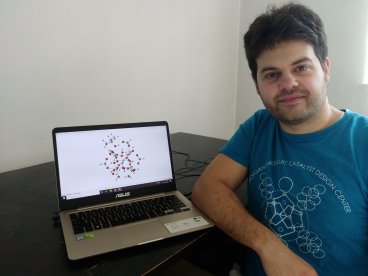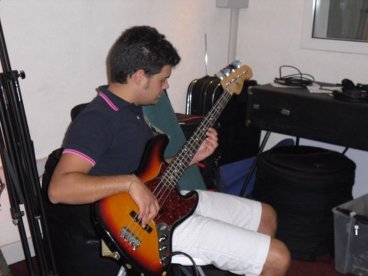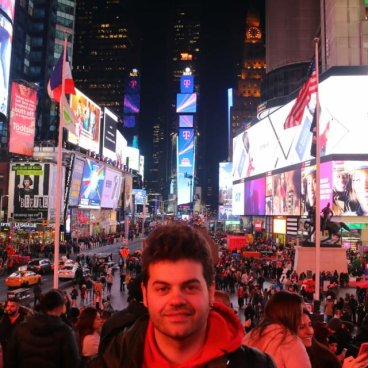Error message
Warning: Undefined variable $is_live in
_uofm_unit_is_live() (line
97 of
sites/cse.umn.edu/modules/custom/uofm_check_access/uofm_check_access.module).
_uofm_unit_is_live(Array) (Line: 65)
uofm_check_access_node_access(Object, 'view', Object)
call_user_func_array(Object, Array) (Line: 409)
Drupal\Core\Extension\ModuleHandler->Drupal\Core\Extension\{closure}(Object, 'uofm_check_access') (Line: 388)
Drupal\Core\Extension\ModuleHandler->invokeAllWith('node_access', Object) (Line: 408)
Drupal\Core\Extension\ModuleHandler->invokeAll('node_access', Array) (Line: 97)
Drupal\Core\Entity\EntityAccessControlHandler->access(Object, 'view', Object, 1) (Line: 101)
Drupal\node\NodeAccessControlHandler->access(Object, 'view', Object, 1) (Line: 706)
Drupal\Core\Entity\ContentEntityBase->access('view', Object, 1) (Line: 195)
Drupal\node\Entity\Node->access('view', Object, 1) (Line: 68)
Drupal\Core\Entity\EntityAccessCheck->access(Object, Object, Object)
call_user_func_array(Array, Array) (Line: 160)
Drupal\Core\Access\AccessManager->performCheck('access_check.entity', Object) (Line: 136)
Drupal\Core\Access\AccessManager->check(Object, Object, NULL, 1) (Line: 93)
Drupal\Core\Access\AccessManager->checkNamedRoute('entity.node.canonical', Array, Object, 1) (Line: 227)
Drupal\Core\Menu\DefaultMenuLinkTreeManipulators->menuLinkCheckAccess(Object) (Line: 107)
Drupal\Core\Menu\DefaultMenuLinkTreeManipulators->checkAccess(Array)
call_user_func(Array, Array) (Line: 149)
Drupal\Core\Menu\MenuLinkTree->transform(Array, Array) (Line: 1542)
Drupal\superfish\Plugin\Block\SuperfishBlock->build() (Line: 171)
Drupal\block\BlockViewBuilder::preRender(Array)
call_user_func_array(Array, Array) (Line: 111)
Drupal\Core\Render\Renderer->doTrustedCallback(Array, Array, 'Render #pre_render callbacks must be methods of a class that implements \Drupal\Core\Security\TrustedCallbackInterface or be an anonymous function. The callback was %s. See https://www.drupal.org/node/2966725', 'exception', 'Drupal\Core\Render\Element\RenderCallbackInterface') (Line: 797)
Drupal\Core\Render\Renderer->doCallback('#pre_render', Array, Array) (Line: 386)
Drupal\Core\Render\Renderer->doRender(Array) (Line: 458)
Drupal\Core\Render\Renderer->doRender(Array, ) (Line: 204)
Drupal\Core\Render\Renderer->render(Array) (Line: 474)
Drupal\Core\Template\TwigExtension->escapeFilter(Object, Array, 'html', NULL, 1) (Line: 111)
__TwigTemplate_b90b57ab010cb2e78b1932b172809b6f->doDisplay(Array, Array) (Line: 394)
Twig\Template->displayWithErrorHandling(Array, Array) (Line: 367)
Twig\Template->display(Array) (Line: 50)
__TwigTemplate_3ae4e759b13d893e3845360a82f7c6c9->doDisplay(Array, Array) (Line: 394)
Twig\Template->displayWithErrorHandling(Array, Array) (Line: 367)
Twig\Template->display(Array) (Line: 379)
Twig\Template->render(Array) (Line: 38)
Twig\TemplateWrapper->render(Array) (Line: 53)
twig_render_template('sites/cse.umn.edu/themes/custom/cse/templates/page.html.twig', Array) (Line: 372)
Drupal\Core\Theme\ThemeManager->render('page', Array) (Line: 445)
Drupal\Core\Render\Renderer->doRender(Array, ) (Line: 204)
Drupal\Core\Render\Renderer->render(Array) (Line: 474)
Drupal\Core\Template\TwigExtension->escapeFilter(Object, Array, 'html', NULL, 1) (Line: 95)
__TwigTemplate_8e7b7f91d9bd881f7970a255c307efa7->doDisplay(Array, Array) (Line: 394)
Twig\Template->displayWithErrorHandling(Array, Array) (Line: 367)
Twig\Template->display(Array) (Line: 379)
Twig\Template->render(Array) (Line: 38)
Twig\TemplateWrapper->render(Array) (Line: 53)
twig_render_template('sites/cse.umn.edu/themes/custom/cse/templates/html.html.twig', Array) (Line: 372)
Drupal\Core\Theme\ThemeManager->render('html', Array) (Line: 445)
Drupal\Core\Render\Renderer->doRender(Array, ) (Line: 204)
Drupal\Core\Render\Renderer->render(Array) (Line: 158)
Drupal\Core\Render\MainContent\HtmlRenderer->Drupal\Core\Render\MainContent\{closure}() (Line: 592)
Drupal\Core\Render\Renderer->executeInRenderContext(Object, Object) (Line: 153)
Drupal\Core\Render\MainContent\HtmlRenderer->renderResponse(Array, Object, Object) (Line: 90)
Drupal\Core\EventSubscriber\MainContentViewSubscriber->onViewRenderArray(Object, 'kernel.view', Object)
call_user_func(Array, Object, 'kernel.view', Object) (Line: 111)
Drupal\Component\EventDispatcher\ContainerAwareEventDispatcher->dispatch(Object, 'kernel.view') (Line: 186)
Symfony\Component\HttpKernel\HttpKernel->handleRaw(Object, 1) (Line: 76)
Symfony\Component\HttpKernel\HttpKernel->handle(Object, 1, 1) (Line: 58)
Drupal\Core\StackMiddleware\Session->handle(Object, 1, 1) (Line: 48)
Drupal\Core\StackMiddleware\KernelPreHandle->handle(Object, 1, 1) (Line: 191)
Drupal\page_cache\StackMiddleware\PageCache->fetch(Object, 1, 1) (Line: 128)
Drupal\page_cache\StackMiddleware\PageCache->lookup(Object, 1, 1) (Line: 82)
Drupal\page_cache\StackMiddleware\PageCache->handle(Object, 1, 1) (Line: 48)
Drupal\Core\StackMiddleware\ReverseProxyMiddleware->handle(Object, 1, 1) (Line: 51)
Drupal\Core\StackMiddleware\NegotiationMiddleware->handle(Object, 1, 1) (Line: 51)
Drupal\Core\StackMiddleware\StackedHttpKernel->handle(Object, 1, 1) (Line: 704)
Drupal\Core\DrupalKernel->handle(Object) (Line: 19)
Warning: Attempt to read property "value" on null in
_uofm_unit_is_live() (line
97 of
sites/cse.umn.edu/modules/custom/uofm_check_access/uofm_check_access.module).
_uofm_unit_is_live(Array) (Line: 65)
uofm_check_access_node_access(Object, 'view', Object)
call_user_func_array(Object, Array) (Line: 409)
Drupal\Core\Extension\ModuleHandler->Drupal\Core\Extension\{closure}(Object, 'uofm_check_access') (Line: 388)
Drupal\Core\Extension\ModuleHandler->invokeAllWith('node_access', Object) (Line: 408)
Drupal\Core\Extension\ModuleHandler->invokeAll('node_access', Array) (Line: 97)
Drupal\Core\Entity\EntityAccessControlHandler->access(Object, 'view', Object, 1) (Line: 101)
Drupal\node\NodeAccessControlHandler->access(Object, 'view', Object, 1) (Line: 706)
Drupal\Core\Entity\ContentEntityBase->access('view', Object, 1) (Line: 195)
Drupal\node\Entity\Node->access('view', Object, 1) (Line: 68)
Drupal\Core\Entity\EntityAccessCheck->access(Object, Object, Object)
call_user_func_array(Array, Array) (Line: 160)
Drupal\Core\Access\AccessManager->performCheck('access_check.entity', Object) (Line: 136)
Drupal\Core\Access\AccessManager->check(Object, Object, NULL, 1) (Line: 93)
Drupal\Core\Access\AccessManager->checkNamedRoute('entity.node.canonical', Array, Object, 1) (Line: 227)
Drupal\Core\Menu\DefaultMenuLinkTreeManipulators->menuLinkCheckAccess(Object) (Line: 107)
Drupal\Core\Menu\DefaultMenuLinkTreeManipulators->checkAccess(Array)
call_user_func(Array, Array) (Line: 149)
Drupal\Core\Menu\MenuLinkTree->transform(Array, Array) (Line: 1542)
Drupal\superfish\Plugin\Block\SuperfishBlock->build() (Line: 171)
Drupal\block\BlockViewBuilder::preRender(Array)
call_user_func_array(Array, Array) (Line: 111)
Drupal\Core\Render\Renderer->doTrustedCallback(Array, Array, 'Render #pre_render callbacks must be methods of a class that implements \Drupal\Core\Security\TrustedCallbackInterface or be an anonymous function. The callback was %s. See https://www.drupal.org/node/2966725', 'exception', 'Drupal\Core\Render\Element\RenderCallbackInterface') (Line: 797)
Drupal\Core\Render\Renderer->doCallback('#pre_render', Array, Array) (Line: 386)
Drupal\Core\Render\Renderer->doRender(Array) (Line: 458)
Drupal\Core\Render\Renderer->doRender(Array, ) (Line: 204)
Drupal\Core\Render\Renderer->render(Array) (Line: 474)
Drupal\Core\Template\TwigExtension->escapeFilter(Object, Array, 'html', NULL, 1) (Line: 111)
__TwigTemplate_b90b57ab010cb2e78b1932b172809b6f->doDisplay(Array, Array) (Line: 394)
Twig\Template->displayWithErrorHandling(Array, Array) (Line: 367)
Twig\Template->display(Array) (Line: 50)
__TwigTemplate_3ae4e759b13d893e3845360a82f7c6c9->doDisplay(Array, Array) (Line: 394)
Twig\Template->displayWithErrorHandling(Array, Array) (Line: 367)
Twig\Template->display(Array) (Line: 379)
Twig\Template->render(Array) (Line: 38)
Twig\TemplateWrapper->render(Array) (Line: 53)
twig_render_template('sites/cse.umn.edu/themes/custom/cse/templates/page.html.twig', Array) (Line: 372)
Drupal\Core\Theme\ThemeManager->render('page', Array) (Line: 445)
Drupal\Core\Render\Renderer->doRender(Array, ) (Line: 204)
Drupal\Core\Render\Renderer->render(Array) (Line: 474)
Drupal\Core\Template\TwigExtension->escapeFilter(Object, Array, 'html', NULL, 1) (Line: 95)
__TwigTemplate_8e7b7f91d9bd881f7970a255c307efa7->doDisplay(Array, Array) (Line: 394)
Twig\Template->displayWithErrorHandling(Array, Array) (Line: 367)
Twig\Template->display(Array) (Line: 379)
Twig\Template->render(Array) (Line: 38)
Twig\TemplateWrapper->render(Array) (Line: 53)
twig_render_template('sites/cse.umn.edu/themes/custom/cse/templates/html.html.twig', Array) (Line: 372)
Drupal\Core\Theme\ThemeManager->render('html', Array) (Line: 445)
Drupal\Core\Render\Renderer->doRender(Array, ) (Line: 204)
Drupal\Core\Render\Renderer->render(Array) (Line: 158)
Drupal\Core\Render\MainContent\HtmlRenderer->Drupal\Core\Render\MainContent\{closure}() (Line: 592)
Drupal\Core\Render\Renderer->executeInRenderContext(Object, Object) (Line: 153)
Drupal\Core\Render\MainContent\HtmlRenderer->renderResponse(Array, Object, Object) (Line: 90)
Drupal\Core\EventSubscriber\MainContentViewSubscriber->onViewRenderArray(Object, 'kernel.view', Object)
call_user_func(Array, Object, 'kernel.view', Object) (Line: 111)
Drupal\Component\EventDispatcher\ContainerAwareEventDispatcher->dispatch(Object, 'kernel.view') (Line: 186)
Symfony\Component\HttpKernel\HttpKernel->handleRaw(Object, 1) (Line: 76)
Symfony\Component\HttpKernel\HttpKernel->handle(Object, 1, 1) (Line: 58)
Drupal\Core\StackMiddleware\Session->handle(Object, 1, 1) (Line: 48)
Drupal\Core\StackMiddleware\KernelPreHandle->handle(Object, 1, 1) (Line: 191)
Drupal\page_cache\StackMiddleware\PageCache->fetch(Object, 1, 1) (Line: 128)
Drupal\page_cache\StackMiddleware\PageCache->lookup(Object, 1, 1) (Line: 82)
Drupal\page_cache\StackMiddleware\PageCache->handle(Object, 1, 1) (Line: 48)
Drupal\Core\StackMiddleware\ReverseProxyMiddleware->handle(Object, 1, 1) (Line: 51)
Drupal\Core\StackMiddleware\NegotiationMiddleware->handle(Object, 1, 1) (Line: 51)
Drupal\Core\StackMiddleware\StackedHttpKernel->handle(Object, 1, 1) (Line: 704)
Drupal\Core\DrupalKernel->handle(Object) (Line: 19)
Warning: Undefined variable $is_live in
_uofm_unit_is_live() (line
97 of
sites/cse.umn.edu/modules/custom/uofm_check_access/uofm_check_access.module).
_uofm_unit_is_live(Array) (Line: 65)
uofm_check_access_node_access(Object, 'view', Object)
call_user_func_array(Object, Array) (Line: 409)
Drupal\Core\Extension\ModuleHandler->Drupal\Core\Extension\{closure}(Object, 'uofm_check_access') (Line: 388)
Drupal\Core\Extension\ModuleHandler->invokeAllWith('node_access', Object) (Line: 408)
Drupal\Core\Extension\ModuleHandler->invokeAll('node_access', Array) (Line: 97)
Drupal\Core\Entity\EntityAccessControlHandler->access(Object, 'view', Object, 1) (Line: 101)
Drupal\node\NodeAccessControlHandler->access(Object, 'view', Object, 1) (Line: 706)
Drupal\Core\Entity\ContentEntityBase->access('view', Object, 1) (Line: 195)
Drupal\node\Entity\Node->access('view', Object, 1) (Line: 68)
Drupal\Core\Entity\EntityAccessCheck->access(Object, Object, Object)
call_user_func_array(Array, Array) (Line: 160)
Drupal\Core\Access\AccessManager->performCheck('access_check.entity', Object) (Line: 136)
Drupal\Core\Access\AccessManager->check(Object, Object, NULL, 1) (Line: 93)
Drupal\Core\Access\AccessManager->checkNamedRoute('entity.node.canonical', Array, Object, 1) (Line: 227)
Drupal\Core\Menu\DefaultMenuLinkTreeManipulators->menuLinkCheckAccess(Object) (Line: 107)
Drupal\Core\Menu\DefaultMenuLinkTreeManipulators->checkAccess(Array) (Line: 111)
Drupal\Core\Menu\DefaultMenuLinkTreeManipulators->checkAccess(Array)
call_user_func(Array, Array) (Line: 149)
Drupal\Core\Menu\MenuLinkTree->transform(Array, Array) (Line: 1542)
Drupal\superfish\Plugin\Block\SuperfishBlock->build() (Line: 171)
Drupal\block\BlockViewBuilder::preRender(Array)
call_user_func_array(Array, Array) (Line: 111)
Drupal\Core\Render\Renderer->doTrustedCallback(Array, Array, 'Render #pre_render callbacks must be methods of a class that implements \Drupal\Core\Security\TrustedCallbackInterface or be an anonymous function. The callback was %s. See https://www.drupal.org/node/2966725', 'exception', 'Drupal\Core\Render\Element\RenderCallbackInterface') (Line: 797)
Drupal\Core\Render\Renderer->doCallback('#pre_render', Array, Array) (Line: 386)
Drupal\Core\Render\Renderer->doRender(Array) (Line: 458)
Drupal\Core\Render\Renderer->doRender(Array, ) (Line: 204)
Drupal\Core\Render\Renderer->render(Array) (Line: 474)
Drupal\Core\Template\TwigExtension->escapeFilter(Object, Array, 'html', NULL, 1) (Line: 111)
__TwigTemplate_b90b57ab010cb2e78b1932b172809b6f->doDisplay(Array, Array) (Line: 394)
Twig\Template->displayWithErrorHandling(Array, Array) (Line: 367)
Twig\Template->display(Array) (Line: 50)
__TwigTemplate_3ae4e759b13d893e3845360a82f7c6c9->doDisplay(Array, Array) (Line: 394)
Twig\Template->displayWithErrorHandling(Array, Array) (Line: 367)
Twig\Template->display(Array) (Line: 379)
Twig\Template->render(Array) (Line: 38)
Twig\TemplateWrapper->render(Array) (Line: 53)
twig_render_template('sites/cse.umn.edu/themes/custom/cse/templates/page.html.twig', Array) (Line: 372)
Drupal\Core\Theme\ThemeManager->render('page', Array) (Line: 445)
Drupal\Core\Render\Renderer->doRender(Array, ) (Line: 204)
Drupal\Core\Render\Renderer->render(Array) (Line: 474)
Drupal\Core\Template\TwigExtension->escapeFilter(Object, Array, 'html', NULL, 1) (Line: 95)
__TwigTemplate_8e7b7f91d9bd881f7970a255c307efa7->doDisplay(Array, Array) (Line: 394)
Twig\Template->displayWithErrorHandling(Array, Array) (Line: 367)
Twig\Template->display(Array) (Line: 379)
Twig\Template->render(Array) (Line: 38)
Twig\TemplateWrapper->render(Array) (Line: 53)
twig_render_template('sites/cse.umn.edu/themes/custom/cse/templates/html.html.twig', Array) (Line: 372)
Drupal\Core\Theme\ThemeManager->render('html', Array) (Line: 445)
Drupal\Core\Render\Renderer->doRender(Array, ) (Line: 204)
Drupal\Core\Render\Renderer->render(Array) (Line: 158)
Drupal\Core\Render\MainContent\HtmlRenderer->Drupal\Core\Render\MainContent\{closure}() (Line: 592)
Drupal\Core\Render\Renderer->executeInRenderContext(Object, Object) (Line: 153)
Drupal\Core\Render\MainContent\HtmlRenderer->renderResponse(Array, Object, Object) (Line: 90)
Drupal\Core\EventSubscriber\MainContentViewSubscriber->onViewRenderArray(Object, 'kernel.view', Object)
call_user_func(Array, Object, 'kernel.view', Object) (Line: 111)
Drupal\Component\EventDispatcher\ContainerAwareEventDispatcher->dispatch(Object, 'kernel.view') (Line: 186)
Symfony\Component\HttpKernel\HttpKernel->handleRaw(Object, 1) (Line: 76)
Symfony\Component\HttpKernel\HttpKernel->handle(Object, 1, 1) (Line: 58)
Drupal\Core\StackMiddleware\Session->handle(Object, 1, 1) (Line: 48)
Drupal\Core\StackMiddleware\KernelPreHandle->handle(Object, 1, 1) (Line: 191)
Drupal\page_cache\StackMiddleware\PageCache->fetch(Object, 1, 1) (Line: 128)
Drupal\page_cache\StackMiddleware\PageCache->lookup(Object, 1, 1) (Line: 82)
Drupal\page_cache\StackMiddleware\PageCache->handle(Object, 1, 1) (Line: 48)
Drupal\Core\StackMiddleware\ReverseProxyMiddleware->handle(Object, 1, 1) (Line: 51)
Drupal\Core\StackMiddleware\NegotiationMiddleware->handle(Object, 1, 1) (Line: 51)
Drupal\Core\StackMiddleware\StackedHttpKernel->handle(Object, 1, 1) (Line: 704)
Drupal\Core\DrupalKernel->handle(Object) (Line: 19)
Warning: Attempt to read property "value" on null in
_uofm_unit_is_live() (line
97 of
sites/cse.umn.edu/modules/custom/uofm_check_access/uofm_check_access.module).
_uofm_unit_is_live(Array) (Line: 65)
uofm_check_access_node_access(Object, 'view', Object)
call_user_func_array(Object, Array) (Line: 409)
Drupal\Core\Extension\ModuleHandler->Drupal\Core\Extension\{closure}(Object, 'uofm_check_access') (Line: 388)
Drupal\Core\Extension\ModuleHandler->invokeAllWith('node_access', Object) (Line: 408)
Drupal\Core\Extension\ModuleHandler->invokeAll('node_access', Array) (Line: 97)
Drupal\Core\Entity\EntityAccessControlHandler->access(Object, 'view', Object, 1) (Line: 101)
Drupal\node\NodeAccessControlHandler->access(Object, 'view', Object, 1) (Line: 706)
Drupal\Core\Entity\ContentEntityBase->access('view', Object, 1) (Line: 195)
Drupal\node\Entity\Node->access('view', Object, 1) (Line: 68)
Drupal\Core\Entity\EntityAccessCheck->access(Object, Object, Object)
call_user_func_array(Array, Array) (Line: 160)
Drupal\Core\Access\AccessManager->performCheck('access_check.entity', Object) (Line: 136)
Drupal\Core\Access\AccessManager->check(Object, Object, NULL, 1) (Line: 93)
Drupal\Core\Access\AccessManager->checkNamedRoute('entity.node.canonical', Array, Object, 1) (Line: 227)
Drupal\Core\Menu\DefaultMenuLinkTreeManipulators->menuLinkCheckAccess(Object) (Line: 107)
Drupal\Core\Menu\DefaultMenuLinkTreeManipulators->checkAccess(Array) (Line: 111)
Drupal\Core\Menu\DefaultMenuLinkTreeManipulators->checkAccess(Array)
call_user_func(Array, Array) (Line: 149)
Drupal\Core\Menu\MenuLinkTree->transform(Array, Array) (Line: 1542)
Drupal\superfish\Plugin\Block\SuperfishBlock->build() (Line: 171)
Drupal\block\BlockViewBuilder::preRender(Array)
call_user_func_array(Array, Array) (Line: 111)
Drupal\Core\Render\Renderer->doTrustedCallback(Array, Array, 'Render #pre_render callbacks must be methods of a class that implements \Drupal\Core\Security\TrustedCallbackInterface or be an anonymous function. The callback was %s. See https://www.drupal.org/node/2966725', 'exception', 'Drupal\Core\Render\Element\RenderCallbackInterface') (Line: 797)
Drupal\Core\Render\Renderer->doCallback('#pre_render', Array, Array) (Line: 386)
Drupal\Core\Render\Renderer->doRender(Array) (Line: 458)
Drupal\Core\Render\Renderer->doRender(Array, ) (Line: 204)
Drupal\Core\Render\Renderer->render(Array) (Line: 474)
Drupal\Core\Template\TwigExtension->escapeFilter(Object, Array, 'html', NULL, 1) (Line: 111)
__TwigTemplate_b90b57ab010cb2e78b1932b172809b6f->doDisplay(Array, Array) (Line: 394)
Twig\Template->displayWithErrorHandling(Array, Array) (Line: 367)
Twig\Template->display(Array) (Line: 50)
__TwigTemplate_3ae4e759b13d893e3845360a82f7c6c9->doDisplay(Array, Array) (Line: 394)
Twig\Template->displayWithErrorHandling(Array, Array) (Line: 367)
Twig\Template->display(Array) (Line: 379)
Twig\Template->render(Array) (Line: 38)
Twig\TemplateWrapper->render(Array) (Line: 53)
twig_render_template('sites/cse.umn.edu/themes/custom/cse/templates/page.html.twig', Array) (Line: 372)
Drupal\Core\Theme\ThemeManager->render('page', Array) (Line: 445)
Drupal\Core\Render\Renderer->doRender(Array, ) (Line: 204)
Drupal\Core\Render\Renderer->render(Array) (Line: 474)
Drupal\Core\Template\TwigExtension->escapeFilter(Object, Array, 'html', NULL, 1) (Line: 95)
__TwigTemplate_8e7b7f91d9bd881f7970a255c307efa7->doDisplay(Array, Array) (Line: 394)
Twig\Template->displayWithErrorHandling(Array, Array) (Line: 367)
Twig\Template->display(Array) (Line: 379)
Twig\Template->render(Array) (Line: 38)
Twig\TemplateWrapper->render(Array) (Line: 53)
twig_render_template('sites/cse.umn.edu/themes/custom/cse/templates/html.html.twig', Array) (Line: 372)
Drupal\Core\Theme\ThemeManager->render('html', Array) (Line: 445)
Drupal\Core\Render\Renderer->doRender(Array, ) (Line: 204)
Drupal\Core\Render\Renderer->render(Array) (Line: 158)
Drupal\Core\Render\MainContent\HtmlRenderer->Drupal\Core\Render\MainContent\{closure}() (Line: 592)
Drupal\Core\Render\Renderer->executeInRenderContext(Object, Object) (Line: 153)
Drupal\Core\Render\MainContent\HtmlRenderer->renderResponse(Array, Object, Object) (Line: 90)
Drupal\Core\EventSubscriber\MainContentViewSubscriber->onViewRenderArray(Object, 'kernel.view', Object)
call_user_func(Array, Object, 'kernel.view', Object) (Line: 111)
Drupal\Component\EventDispatcher\ContainerAwareEventDispatcher->dispatch(Object, 'kernel.view') (Line: 186)
Symfony\Component\HttpKernel\HttpKernel->handleRaw(Object, 1) (Line: 76)
Symfony\Component\HttpKernel\HttpKernel->handle(Object, 1, 1) (Line: 58)
Drupal\Core\StackMiddleware\Session->handle(Object, 1, 1) (Line: 48)
Drupal\Core\StackMiddleware\KernelPreHandle->handle(Object, 1, 1) (Line: 191)
Drupal\page_cache\StackMiddleware\PageCache->fetch(Object, 1, 1) (Line: 128)
Drupal\page_cache\StackMiddleware\PageCache->lookup(Object, 1, 1) (Line: 82)
Drupal\page_cache\StackMiddleware\PageCache->handle(Object, 1, 1) (Line: 48)
Drupal\Core\StackMiddleware\ReverseProxyMiddleware->handle(Object, 1, 1) (Line: 51)
Drupal\Core\StackMiddleware\NegotiationMiddleware->handle(Object, 1, 1) (Line: 51)
Drupal\Core\StackMiddleware\StackedHttpKernel->handle(Object, 1, 1) (Line: 704)
Drupal\Core\DrupalKernel->handle(Object) (Line: 19)
Warning: Undefined variable $is_live in
_uofm_unit_is_live() (line
97 of
sites/cse.umn.edu/modules/custom/uofm_check_access/uofm_check_access.module).
_uofm_unit_is_live(Array) (Line: 65)
uofm_check_access_node_access(Object, 'view', Object)
call_user_func_array(Object, Array) (Line: 409)
Drupal\Core\Extension\ModuleHandler->Drupal\Core\Extension\{closure}(Object, 'uofm_check_access') (Line: 388)
Drupal\Core\Extension\ModuleHandler->invokeAllWith('node_access', Object) (Line: 408)
Drupal\Core\Extension\ModuleHandler->invokeAll('node_access', Array) (Line: 97)
Drupal\Core\Entity\EntityAccessControlHandler->access(Object, 'view', Object, 1) (Line: 101)
Drupal\node\NodeAccessControlHandler->access(Object, 'view', Object, 1) (Line: 706)
Drupal\Core\Entity\ContentEntityBase->access('view', Object, 1) (Line: 195)
Drupal\node\Entity\Node->access('view', Object, 1) (Line: 68)
Drupal\Core\Entity\EntityAccessCheck->access(Object, Object, Object)
call_user_func_array(Array, Array) (Line: 160)
Drupal\Core\Access\AccessManager->performCheck('access_check.entity', Object) (Line: 136)
Drupal\Core\Access\AccessManager->check(Object, Object, NULL, 1) (Line: 93)
Drupal\Core\Access\AccessManager->checkNamedRoute('entity.node.canonical', Array, Object, 1) (Line: 227)
Drupal\Core\Menu\DefaultMenuLinkTreeManipulators->menuLinkCheckAccess(Object) (Line: 107)
Drupal\Core\Menu\DefaultMenuLinkTreeManipulators->checkAccess(Array) (Line: 111)
Drupal\Core\Menu\DefaultMenuLinkTreeManipulators->checkAccess(Array)
call_user_func(Array, Array) (Line: 149)
Drupal\Core\Menu\MenuLinkTree->transform(Array, Array) (Line: 1542)
Drupal\superfish\Plugin\Block\SuperfishBlock->build() (Line: 171)
Drupal\block\BlockViewBuilder::preRender(Array)
call_user_func_array(Array, Array) (Line: 111)
Drupal\Core\Render\Renderer->doTrustedCallback(Array, Array, 'Render #pre_render callbacks must be methods of a class that implements \Drupal\Core\Security\TrustedCallbackInterface or be an anonymous function. The callback was %s. See https://www.drupal.org/node/2966725', 'exception', 'Drupal\Core\Render\Element\RenderCallbackInterface') (Line: 797)
Drupal\Core\Render\Renderer->doCallback('#pre_render', Array, Array) (Line: 386)
Drupal\Core\Render\Renderer->doRender(Array) (Line: 458)
Drupal\Core\Render\Renderer->doRender(Array, ) (Line: 204)
Drupal\Core\Render\Renderer->render(Array) (Line: 474)
Drupal\Core\Template\TwigExtension->escapeFilter(Object, Array, 'html', NULL, 1) (Line: 111)
__TwigTemplate_b90b57ab010cb2e78b1932b172809b6f->doDisplay(Array, Array) (Line: 394)
Twig\Template->displayWithErrorHandling(Array, Array) (Line: 367)
Twig\Template->display(Array) (Line: 50)
__TwigTemplate_3ae4e759b13d893e3845360a82f7c6c9->doDisplay(Array, Array) (Line: 394)
Twig\Template->displayWithErrorHandling(Array, Array) (Line: 367)
Twig\Template->display(Array) (Line: 379)
Twig\Template->render(Array) (Line: 38)
Twig\TemplateWrapper->render(Array) (Line: 53)
twig_render_template('sites/cse.umn.edu/themes/custom/cse/templates/page.html.twig', Array) (Line: 372)
Drupal\Core\Theme\ThemeManager->render('page', Array) (Line: 445)
Drupal\Core\Render\Renderer->doRender(Array, ) (Line: 204)
Drupal\Core\Render\Renderer->render(Array) (Line: 474)
Drupal\Core\Template\TwigExtension->escapeFilter(Object, Array, 'html', NULL, 1) (Line: 95)
__TwigTemplate_8e7b7f91d9bd881f7970a255c307efa7->doDisplay(Array, Array) (Line: 394)
Twig\Template->displayWithErrorHandling(Array, Array) (Line: 367)
Twig\Template->display(Array) (Line: 379)
Twig\Template->render(Array) (Line: 38)
Twig\TemplateWrapper->render(Array) (Line: 53)
twig_render_template('sites/cse.umn.edu/themes/custom/cse/templates/html.html.twig', Array) (Line: 372)
Drupal\Core\Theme\ThemeManager->render('html', Array) (Line: 445)
Drupal\Core\Render\Renderer->doRender(Array, ) (Line: 204)
Drupal\Core\Render\Renderer->render(Array) (Line: 158)
Drupal\Core\Render\MainContent\HtmlRenderer->Drupal\Core\Render\MainContent\{closure}() (Line: 592)
Drupal\Core\Render\Renderer->executeInRenderContext(Object, Object) (Line: 153)
Drupal\Core\Render\MainContent\HtmlRenderer->renderResponse(Array, Object, Object) (Line: 90)
Drupal\Core\EventSubscriber\MainContentViewSubscriber->onViewRenderArray(Object, 'kernel.view', Object)
call_user_func(Array, Object, 'kernel.view', Object) (Line: 111)
Drupal\Component\EventDispatcher\ContainerAwareEventDispatcher->dispatch(Object, 'kernel.view') (Line: 186)
Symfony\Component\HttpKernel\HttpKernel->handleRaw(Object, 1) (Line: 76)
Symfony\Component\HttpKernel\HttpKernel->handle(Object, 1, 1) (Line: 58)
Drupal\Core\StackMiddleware\Session->handle(Object, 1, 1) (Line: 48)
Drupal\Core\StackMiddleware\KernelPreHandle->handle(Object, 1, 1) (Line: 191)
Drupal\page_cache\StackMiddleware\PageCache->fetch(Object, 1, 1) (Line: 128)
Drupal\page_cache\StackMiddleware\PageCache->lookup(Object, 1, 1) (Line: 82)
Drupal\page_cache\StackMiddleware\PageCache->handle(Object, 1, 1) (Line: 48)
Drupal\Core\StackMiddleware\ReverseProxyMiddleware->handle(Object, 1, 1) (Line: 51)
Drupal\Core\StackMiddleware\NegotiationMiddleware->handle(Object, 1, 1) (Line: 51)
Drupal\Core\StackMiddleware\StackedHttpKernel->handle(Object, 1, 1) (Line: 704)
Drupal\Core\DrupalKernel->handle(Object) (Line: 19)
Warning: Attempt to read property "value" on null in
_uofm_unit_is_live() (line
97 of
sites/cse.umn.edu/modules/custom/uofm_check_access/uofm_check_access.module).
_uofm_unit_is_live(Array) (Line: 65)
uofm_check_access_node_access(Object, 'view', Object)
call_user_func_array(Object, Array) (Line: 409)
Drupal\Core\Extension\ModuleHandler->Drupal\Core\Extension\{closure}(Object, 'uofm_check_access') (Line: 388)
Drupal\Core\Extension\ModuleHandler->invokeAllWith('node_access', Object) (Line: 408)
Drupal\Core\Extension\ModuleHandler->invokeAll('node_access', Array) (Line: 97)
Drupal\Core\Entity\EntityAccessControlHandler->access(Object, 'view', Object, 1) (Line: 101)
Drupal\node\NodeAccessControlHandler->access(Object, 'view', Object, 1) (Line: 706)
Drupal\Core\Entity\ContentEntityBase->access('view', Object, 1) (Line: 195)
Drupal\node\Entity\Node->access('view', Object, 1) (Line: 68)
Drupal\Core\Entity\EntityAccessCheck->access(Object, Object, Object)
call_user_func_array(Array, Array) (Line: 160)
Drupal\Core\Access\AccessManager->performCheck('access_check.entity', Object) (Line: 136)
Drupal\Core\Access\AccessManager->check(Object, Object, NULL, 1) (Line: 93)
Drupal\Core\Access\AccessManager->checkNamedRoute('entity.node.canonical', Array, Object, 1) (Line: 227)
Drupal\Core\Menu\DefaultMenuLinkTreeManipulators->menuLinkCheckAccess(Object) (Line: 107)
Drupal\Core\Menu\DefaultMenuLinkTreeManipulators->checkAccess(Array) (Line: 111)
Drupal\Core\Menu\DefaultMenuLinkTreeManipulators->checkAccess(Array)
call_user_func(Array, Array) (Line: 149)
Drupal\Core\Menu\MenuLinkTree->transform(Array, Array) (Line: 1542)
Drupal\superfish\Plugin\Block\SuperfishBlock->build() (Line: 171)
Drupal\block\BlockViewBuilder::preRender(Array)
call_user_func_array(Array, Array) (Line: 111)
Drupal\Core\Render\Renderer->doTrustedCallback(Array, Array, 'Render #pre_render callbacks must be methods of a class that implements \Drupal\Core\Security\TrustedCallbackInterface or be an anonymous function. The callback was %s. See https://www.drupal.org/node/2966725', 'exception', 'Drupal\Core\Render\Element\RenderCallbackInterface') (Line: 797)
Drupal\Core\Render\Renderer->doCallback('#pre_render', Array, Array) (Line: 386)
Drupal\Core\Render\Renderer->doRender(Array) (Line: 458)
Drupal\Core\Render\Renderer->doRender(Array, ) (Line: 204)
Drupal\Core\Render\Renderer->render(Array) (Line: 474)
Drupal\Core\Template\TwigExtension->escapeFilter(Object, Array, 'html', NULL, 1) (Line: 111)
__TwigTemplate_b90b57ab010cb2e78b1932b172809b6f->doDisplay(Array, Array) (Line: 394)
Twig\Template->displayWithErrorHandling(Array, Array) (Line: 367)
Twig\Template->display(Array) (Line: 50)
__TwigTemplate_3ae4e759b13d893e3845360a82f7c6c9->doDisplay(Array, Array) (Line: 394)
Twig\Template->displayWithErrorHandling(Array, Array) (Line: 367)
Twig\Template->display(Array) (Line: 379)
Twig\Template->render(Array) (Line: 38)
Twig\TemplateWrapper->render(Array) (Line: 53)
twig_render_template('sites/cse.umn.edu/themes/custom/cse/templates/page.html.twig', Array) (Line: 372)
Drupal\Core\Theme\ThemeManager->render('page', Array) (Line: 445)
Drupal\Core\Render\Renderer->doRender(Array, ) (Line: 204)
Drupal\Core\Render\Renderer->render(Array) (Line: 474)
Drupal\Core\Template\TwigExtension->escapeFilter(Object, Array, 'html', NULL, 1) (Line: 95)
__TwigTemplate_8e7b7f91d9bd881f7970a255c307efa7->doDisplay(Array, Array) (Line: 394)
Twig\Template->displayWithErrorHandling(Array, Array) (Line: 367)
Twig\Template->display(Array) (Line: 379)
Twig\Template->render(Array) (Line: 38)
Twig\TemplateWrapper->render(Array) (Line: 53)
twig_render_template('sites/cse.umn.edu/themes/custom/cse/templates/html.html.twig', Array) (Line: 372)
Drupal\Core\Theme\ThemeManager->render('html', Array) (Line: 445)
Drupal\Core\Render\Renderer->doRender(Array, ) (Line: 204)
Drupal\Core\Render\Renderer->render(Array) (Line: 158)
Drupal\Core\Render\MainContent\HtmlRenderer->Drupal\Core\Render\MainContent\{closure}() (Line: 592)
Drupal\Core\Render\Renderer->executeInRenderContext(Object, Object) (Line: 153)
Drupal\Core\Render\MainContent\HtmlRenderer->renderResponse(Array, Object, Object) (Line: 90)
Drupal\Core\EventSubscriber\MainContentViewSubscriber->onViewRenderArray(Object, 'kernel.view', Object)
call_user_func(Array, Object, 'kernel.view', Object) (Line: 111)
Drupal\Component\EventDispatcher\ContainerAwareEventDispatcher->dispatch(Object, 'kernel.view') (Line: 186)
Symfony\Component\HttpKernel\HttpKernel->handleRaw(Object, 1) (Line: 76)
Symfony\Component\HttpKernel\HttpKernel->handle(Object, 1, 1) (Line: 58)
Drupal\Core\StackMiddleware\Session->handle(Object, 1, 1) (Line: 48)
Drupal\Core\StackMiddleware\KernelPreHandle->handle(Object, 1, 1) (Line: 191)
Drupal\page_cache\StackMiddleware\PageCache->fetch(Object, 1, 1) (Line: 128)
Drupal\page_cache\StackMiddleware\PageCache->lookup(Object, 1, 1) (Line: 82)
Drupal\page_cache\StackMiddleware\PageCache->handle(Object, 1, 1) (Line: 48)
Drupal\Core\StackMiddleware\ReverseProxyMiddleware->handle(Object, 1, 1) (Line: 51)
Drupal\Core\StackMiddleware\NegotiationMiddleware->handle(Object, 1, 1) (Line: 51)
Drupal\Core\StackMiddleware\StackedHttpKernel->handle(Object, 1, 1) (Line: 704)
Drupal\Core\DrupalKernel->handle(Object) (Line: 19)
Warning: Undefined variable $is_live in
_uofm_unit_is_live() (line
97 of
sites/cse.umn.edu/modules/custom/uofm_check_access/uofm_check_access.module).
_uofm_unit_is_live(Array) (Line: 65)
uofm_check_access_node_access(Object, 'view', Object)
call_user_func_array(Object, Array) (Line: 409)
Drupal\Core\Extension\ModuleHandler->Drupal\Core\Extension\{closure}(Object, 'uofm_check_access') (Line: 388)
Drupal\Core\Extension\ModuleHandler->invokeAllWith('node_access', Object) (Line: 408)
Drupal\Core\Extension\ModuleHandler->invokeAll('node_access', Array) (Line: 97)
Drupal\Core\Entity\EntityAccessControlHandler->access(Object, 'view', Object, 1) (Line: 101)
Drupal\node\NodeAccessControlHandler->access(Object, 'view', Object, 1) (Line: 706)
Drupal\Core\Entity\ContentEntityBase->access('view', Object, 1) (Line: 195)
Drupal\node\Entity\Node->access('view', Object, 1) (Line: 68)
Drupal\Core\Entity\EntityAccessCheck->access(Object, Object, Object)
call_user_func_array(Array, Array) (Line: 160)
Drupal\Core\Access\AccessManager->performCheck('access_check.entity', Object) (Line: 136)
Drupal\Core\Access\AccessManager->check(Object, Object, NULL, 1) (Line: 93)
Drupal\Core\Access\AccessManager->checkNamedRoute('entity.node.canonical', Array, Object, 1) (Line: 227)
Drupal\Core\Menu\DefaultMenuLinkTreeManipulators->menuLinkCheckAccess(Object) (Line: 107)
Drupal\Core\Menu\DefaultMenuLinkTreeManipulators->checkAccess(Array) (Line: 111)
Drupal\Core\Menu\DefaultMenuLinkTreeManipulators->checkAccess(Array)
call_user_func(Array, Array) (Line: 149)
Drupal\Core\Menu\MenuLinkTree->transform(Array, Array) (Line: 1542)
Drupal\superfish\Plugin\Block\SuperfishBlock->build() (Line: 171)
Drupal\block\BlockViewBuilder::preRender(Array)
call_user_func_array(Array, Array) (Line: 111)
Drupal\Core\Render\Renderer->doTrustedCallback(Array, Array, 'Render #pre_render callbacks must be methods of a class that implements \Drupal\Core\Security\TrustedCallbackInterface or be an anonymous function. The callback was %s. See https://www.drupal.org/node/2966725', 'exception', 'Drupal\Core\Render\Element\RenderCallbackInterface') (Line: 797)
Drupal\Core\Render\Renderer->doCallback('#pre_render', Array, Array) (Line: 386)
Drupal\Core\Render\Renderer->doRender(Array) (Line: 458)
Drupal\Core\Render\Renderer->doRender(Array, ) (Line: 204)
Drupal\Core\Render\Renderer->render(Array) (Line: 474)
Drupal\Core\Template\TwigExtension->escapeFilter(Object, Array, 'html', NULL, 1) (Line: 111)
__TwigTemplate_b90b57ab010cb2e78b1932b172809b6f->doDisplay(Array, Array) (Line: 394)
Twig\Template->displayWithErrorHandling(Array, Array) (Line: 367)
Twig\Template->display(Array) (Line: 50)
__TwigTemplate_3ae4e759b13d893e3845360a82f7c6c9->doDisplay(Array, Array) (Line: 394)
Twig\Template->displayWithErrorHandling(Array, Array) (Line: 367)
Twig\Template->display(Array) (Line: 379)
Twig\Template->render(Array) (Line: 38)
Twig\TemplateWrapper->render(Array) (Line: 53)
twig_render_template('sites/cse.umn.edu/themes/custom/cse/templates/page.html.twig', Array) (Line: 372)
Drupal\Core\Theme\ThemeManager->render('page', Array) (Line: 445)
Drupal\Core\Render\Renderer->doRender(Array, ) (Line: 204)
Drupal\Core\Render\Renderer->render(Array) (Line: 474)
Drupal\Core\Template\TwigExtension->escapeFilter(Object, Array, 'html', NULL, 1) (Line: 95)
__TwigTemplate_8e7b7f91d9bd881f7970a255c307efa7->doDisplay(Array, Array) (Line: 394)
Twig\Template->displayWithErrorHandling(Array, Array) (Line: 367)
Twig\Template->display(Array) (Line: 379)
Twig\Template->render(Array) (Line: 38)
Twig\TemplateWrapper->render(Array) (Line: 53)
twig_render_template('sites/cse.umn.edu/themes/custom/cse/templates/html.html.twig', Array) (Line: 372)
Drupal\Core\Theme\ThemeManager->render('html', Array) (Line: 445)
Drupal\Core\Render\Renderer->doRender(Array, ) (Line: 204)
Drupal\Core\Render\Renderer->render(Array) (Line: 158)
Drupal\Core\Render\MainContent\HtmlRenderer->Drupal\Core\Render\MainContent\{closure}() (Line: 592)
Drupal\Core\Render\Renderer->executeInRenderContext(Object, Object) (Line: 153)
Drupal\Core\Render\MainContent\HtmlRenderer->renderResponse(Array, Object, Object) (Line: 90)
Drupal\Core\EventSubscriber\MainContentViewSubscriber->onViewRenderArray(Object, 'kernel.view', Object)
call_user_func(Array, Object, 'kernel.view', Object) (Line: 111)
Drupal\Component\EventDispatcher\ContainerAwareEventDispatcher->dispatch(Object, 'kernel.view') (Line: 186)
Symfony\Component\HttpKernel\HttpKernel->handleRaw(Object, 1) (Line: 76)
Symfony\Component\HttpKernel\HttpKernel->handle(Object, 1, 1) (Line: 58)
Drupal\Core\StackMiddleware\Session->handle(Object, 1, 1) (Line: 48)
Drupal\Core\StackMiddleware\KernelPreHandle->handle(Object, 1, 1) (Line: 191)
Drupal\page_cache\StackMiddleware\PageCache->fetch(Object, 1, 1) (Line: 128)
Drupal\page_cache\StackMiddleware\PageCache->lookup(Object, 1, 1) (Line: 82)
Drupal\page_cache\StackMiddleware\PageCache->handle(Object, 1, 1) (Line: 48)
Drupal\Core\StackMiddleware\ReverseProxyMiddleware->handle(Object, 1, 1) (Line: 51)
Drupal\Core\StackMiddleware\NegotiationMiddleware->handle(Object, 1, 1) (Line: 51)
Drupal\Core\StackMiddleware\StackedHttpKernel->handle(Object, 1, 1) (Line: 704)
Drupal\Core\DrupalKernel->handle(Object) (Line: 19)
Warning: Attempt to read property "value" on null in
_uofm_unit_is_live() (line
97 of
sites/cse.umn.edu/modules/custom/uofm_check_access/uofm_check_access.module).
_uofm_unit_is_live(Array) (Line: 65)
uofm_check_access_node_access(Object, 'view', Object)
call_user_func_array(Object, Array) (Line: 409)
Drupal\Core\Extension\ModuleHandler->Drupal\Core\Extension\{closure}(Object, 'uofm_check_access') (Line: 388)
Drupal\Core\Extension\ModuleHandler->invokeAllWith('node_access', Object) (Line: 408)
Drupal\Core\Extension\ModuleHandler->invokeAll('node_access', Array) (Line: 97)
Drupal\Core\Entity\EntityAccessControlHandler->access(Object, 'view', Object, 1) (Line: 101)
Drupal\node\NodeAccessControlHandler->access(Object, 'view', Object, 1) (Line: 706)
Drupal\Core\Entity\ContentEntityBase->access('view', Object, 1) (Line: 195)
Drupal\node\Entity\Node->access('view', Object, 1) (Line: 68)
Drupal\Core\Entity\EntityAccessCheck->access(Object, Object, Object)
call_user_func_array(Array, Array) (Line: 160)
Drupal\Core\Access\AccessManager->performCheck('access_check.entity', Object) (Line: 136)
Drupal\Core\Access\AccessManager->check(Object, Object, NULL, 1) (Line: 93)
Drupal\Core\Access\AccessManager->checkNamedRoute('entity.node.canonical', Array, Object, 1) (Line: 227)
Drupal\Core\Menu\DefaultMenuLinkTreeManipulators->menuLinkCheckAccess(Object) (Line: 107)
Drupal\Core\Menu\DefaultMenuLinkTreeManipulators->checkAccess(Array) (Line: 111)
Drupal\Core\Menu\DefaultMenuLinkTreeManipulators->checkAccess(Array)
call_user_func(Array, Array) (Line: 149)
Drupal\Core\Menu\MenuLinkTree->transform(Array, Array) (Line: 1542)
Drupal\superfish\Plugin\Block\SuperfishBlock->build() (Line: 171)
Drupal\block\BlockViewBuilder::preRender(Array)
call_user_func_array(Array, Array) (Line: 111)
Drupal\Core\Render\Renderer->doTrustedCallback(Array, Array, 'Render #pre_render callbacks must be methods of a class that implements \Drupal\Core\Security\TrustedCallbackInterface or be an anonymous function. The callback was %s. See https://www.drupal.org/node/2966725', 'exception', 'Drupal\Core\Render\Element\RenderCallbackInterface') (Line: 797)
Drupal\Core\Render\Renderer->doCallback('#pre_render', Array, Array) (Line: 386)
Drupal\Core\Render\Renderer->doRender(Array) (Line: 458)
Drupal\Core\Render\Renderer->doRender(Array, ) (Line: 204)
Drupal\Core\Render\Renderer->render(Array) (Line: 474)
Drupal\Core\Template\TwigExtension->escapeFilter(Object, Array, 'html', NULL, 1) (Line: 111)
__TwigTemplate_b90b57ab010cb2e78b1932b172809b6f->doDisplay(Array, Array) (Line: 394)
Twig\Template->displayWithErrorHandling(Array, Array) (Line: 367)
Twig\Template->display(Array) (Line: 50)
__TwigTemplate_3ae4e759b13d893e3845360a82f7c6c9->doDisplay(Array, Array) (Line: 394)
Twig\Template->displayWithErrorHandling(Array, Array) (Line: 367)
Twig\Template->display(Array) (Line: 379)
Twig\Template->render(Array) (Line: 38)
Twig\TemplateWrapper->render(Array) (Line: 53)
twig_render_template('sites/cse.umn.edu/themes/custom/cse/templates/page.html.twig', Array) (Line: 372)
Drupal\Core\Theme\ThemeManager->render('page', Array) (Line: 445)
Drupal\Core\Render\Renderer->doRender(Array, ) (Line: 204)
Drupal\Core\Render\Renderer->render(Array) (Line: 474)
Drupal\Core\Template\TwigExtension->escapeFilter(Object, Array, 'html', NULL, 1) (Line: 95)
__TwigTemplate_8e7b7f91d9bd881f7970a255c307efa7->doDisplay(Array, Array) (Line: 394)
Twig\Template->displayWithErrorHandling(Array, Array) (Line: 367)
Twig\Template->display(Array) (Line: 379)
Twig\Template->render(Array) (Line: 38)
Twig\TemplateWrapper->render(Array) (Line: 53)
twig_render_template('sites/cse.umn.edu/themes/custom/cse/templates/html.html.twig', Array) (Line: 372)
Drupal\Core\Theme\ThemeManager->render('html', Array) (Line: 445)
Drupal\Core\Render\Renderer->doRender(Array, ) (Line: 204)
Drupal\Core\Render\Renderer->render(Array) (Line: 158)
Drupal\Core\Render\MainContent\HtmlRenderer->Drupal\Core\Render\MainContent\{closure}() (Line: 592)
Drupal\Core\Render\Renderer->executeInRenderContext(Object, Object) (Line: 153)
Drupal\Core\Render\MainContent\HtmlRenderer->renderResponse(Array, Object, Object) (Line: 90)
Drupal\Core\EventSubscriber\MainContentViewSubscriber->onViewRenderArray(Object, 'kernel.view', Object)
call_user_func(Array, Object, 'kernel.view', Object) (Line: 111)
Drupal\Component\EventDispatcher\ContainerAwareEventDispatcher->dispatch(Object, 'kernel.view') (Line: 186)
Symfony\Component\HttpKernel\HttpKernel->handleRaw(Object, 1) (Line: 76)
Symfony\Component\HttpKernel\HttpKernel->handle(Object, 1, 1) (Line: 58)
Drupal\Core\StackMiddleware\Session->handle(Object, 1, 1) (Line: 48)
Drupal\Core\StackMiddleware\KernelPreHandle->handle(Object, 1, 1) (Line: 191)
Drupal\page_cache\StackMiddleware\PageCache->fetch(Object, 1, 1) (Line: 128)
Drupal\page_cache\StackMiddleware\PageCache->lookup(Object, 1, 1) (Line: 82)
Drupal\page_cache\StackMiddleware\PageCache->handle(Object, 1, 1) (Line: 48)
Drupal\Core\StackMiddleware\ReverseProxyMiddleware->handle(Object, 1, 1) (Line: 51)
Drupal\Core\StackMiddleware\NegotiationMiddleware->handle(Object, 1, 1) (Line: 51)
Drupal\Core\StackMiddleware\StackedHttpKernel->handle(Object, 1, 1) (Line: 704)
Drupal\Core\DrupalKernel->handle(Object) (Line: 19)



